By definition hope involves waiting, because what we hope for is what we are looking ahead to — what will be happening (hopefully) before long (hopefully). Waiting is where our gardening craze serves us best, for much of our time in the garden is spent waiting! What insight we can offer to a generation accustomed to instant information in the clutch of their hand.
For a gardener to throw a fit, give way to paranoia, or otherwise be in deep misery in early summer because their fall fruits cannot be harvested is unheard of, straightforward madness. Of course the seasons must take their course; fresh breezes and spring earth smells must yield to more than a few hot, sunny, sultry days; then teeter on tenuous fears of first freeze, before baskets are brimming with fruitful treasure.
Waiting without hope is not really understood as waiting at all — it is treated as real-time anxiety, a perceived permanent state of never-having, easily inflamed to hyper-sensitivity, frenzied pride, and lack of understanding, a summons to haughtiness.
Lenten Rose Lessons in Waiting
To me, hellebores, or Lenten roses as they are affectionately called, are place-holders in the garden’s process of waiting. Gentle reminders—blooming through late December and Lent season’s early spring—that winter’s bleak browns and stifled growth are not dead-ends nor permanent status, but part of the movement towards bright, riotous days where flowering tree branches become heavy-laden boughs.
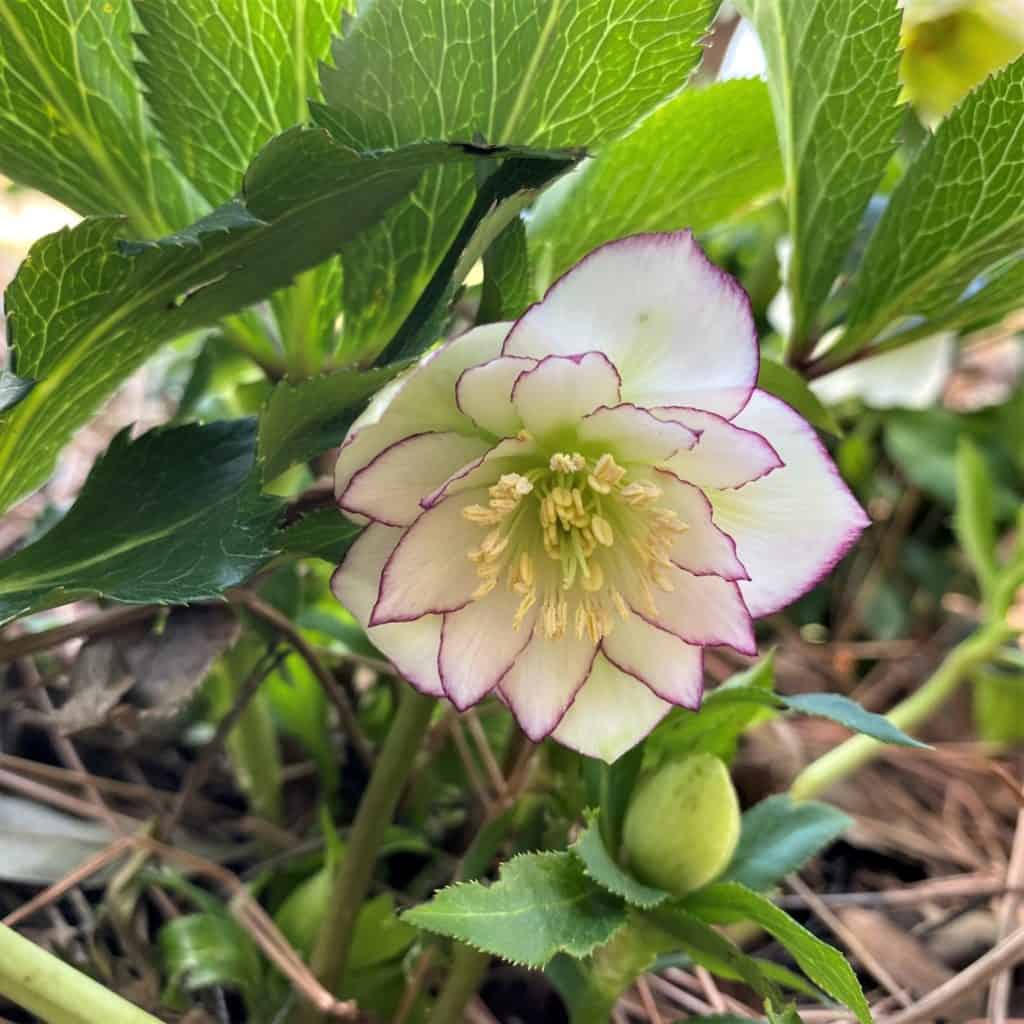
Their flower faces bend to the ground, as if in sympathy with suffering in dark duration. Let us assign them as ambassadors of the waiting season, shall we? The book of Lamentations expresses waiting time’s cry, the sorrows of loss yet resounding hope, the hope in the Lord. The little flowers seem to accept the interim stillness and knowingly enter the silence and bow:
When life is heavy and hard to take,
go off by yourself. Enter the silence.
Bow in prayer. Don’t ask questions:
Wait for hope to appear.
Don’t run from trouble. Take it full-face.
The “worst” is never the worst.
Why? Because the Master won’t ever
walk out and fail to return.
If he works severely, he also works tenderly.
His stockpiles of loyal love are immense.
Lamentations 3:28-32 The Message
As George William Francis wrote, we can be refreshed in such charming plants as the Lenten roses and learn “to look from them to Him.”
Thus instead of the interest in these plants being diminished I sincerely hope it will be increased by this refresher of their charms . . . the whole [volume] will, I trust, give a thirst for the knowledge of the Creator’s works, and a tendency to look from them to Him who made them all…
— George William Francis, The Favorites of the Flower Garden, 1844
For a gardener, waiting is purposeful. It gives time and space to what is growing — a lesson that things may be too profound in God’s providence for immediate grasp. Lenten roses need a few years to truly establish, in my experience, further instruction in the ways of waiting. Yet discovering their cheery color under stiff, leathery leaves is a late winter infusion of garden hope worth the wait. Let us embrace the parallel to the process of placing hope in the Lord:
Lord, my heart is not haughty,
Nor my eyes lofty.
Neither do I concern myself with great matters,
Nor with things too profound for me.
Surely I have calmed and quieted my soul,
Like a weaned child with his mother;
Like a weaned child is my soul within me.
O Israel, hope in the Lord
From this time forth and forever.
Psalm 131: 1-3 NKJV
Prayer: O Lord, once again you speak to me in garden graces, helping me to grasp your ways and get to know how you work. Your love is immense; You don’t run from my troubles. No matter what situation casts my glance to the ground—even what I think to be the “worst”—you will steady me there. You will meet me. Help me to release my pride and give me quiet confidence through hope in You. Remind me to “go off by myself and enter the silence (Lamentations 3:28 MSG),” just as you did (Mark 1:35). Your beautiful hope will not fail me in these times, forth and forever.
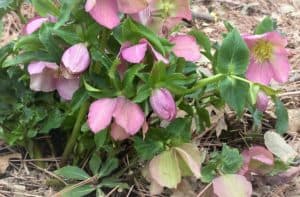
Now may the Lord Jesus Christ and our Father God, who loved us and in his wonderful grace gave us eternal comfort and a beautiful hope that cannot fail, encourage your hearts and inspire you with strength to always do and speak what is good and beautiful in his eyes.
2 Thessalonians 2:16-17 TPT
Linger in these Hope-Full passages:
Lamentations 3:24 – 33, Psalm 33:18 – 22; Psalm 131; 2 Thessalonians 2:16 – 17

Hope is a garden defined! By its very working, the garden gives us something to look forward to — a good, glorious growth taking place or soon to dazzle us, one that lifts our hearts whenever we imagine it. Find Garden Hope is a 7-part devotional series for the Lenten season, matching God’s Word to garden antics and imagery and preparing our hearts to celebrate Christ’s resurrection with deeper union and delight.
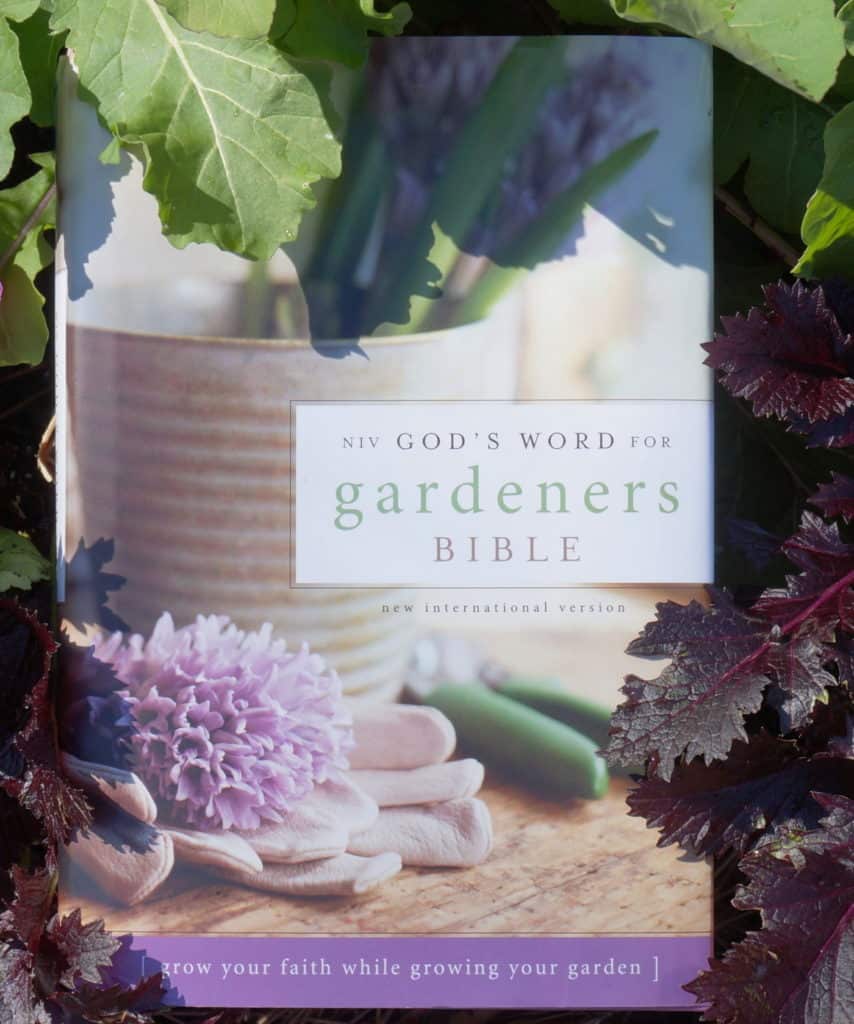
The devotional essays of Find Garden Hope were originally published in the “Garden Tools” section of God’s Word for Gardeners Bible under Hope, ©2014 Shelley S. Cramm. See page a-40 to study by the Book.
Photo Credits: ©2021 Shelley S. Cramm
MSG denotes Scripture quotations taken from THE MESSAGE, copyright © 1993, 2002, 2018 by Eugene H. Peterson. Used by permission of NavPress. All rights reserved. Represented by Tyndale House Publishers, a Division of Tyndale House Ministries.
NKJV denotes Scripture taken from the New King James Version®. Copyright © 1982 by Thomas Nelson. Used by permission. All rights reserved.
footnotes: Psalm 131:1 haughty or Proud; Psalm 131:1 lofty or Arrogant; Psalm 131:1 concern, Lit. walk in; Psalm 131:1 profound or Difficult
TPT denotes Scripture quotations taken from The Passion Translation®. Copyright © 2017, 2018 by Passion & Fire Ministries, Inc. Used by permission. All rights reserved. ThePassionTranslation.com
footnote: 2:17 The Aramaic can be translated “He will comfort your hearts and will stand by all [your] words and by all (your) beautiful deeds.” Another possible Aramaic translation of this verse is “He will make your hearts a well of prophecy and he will stand you in every word and in every beautiful deed.”

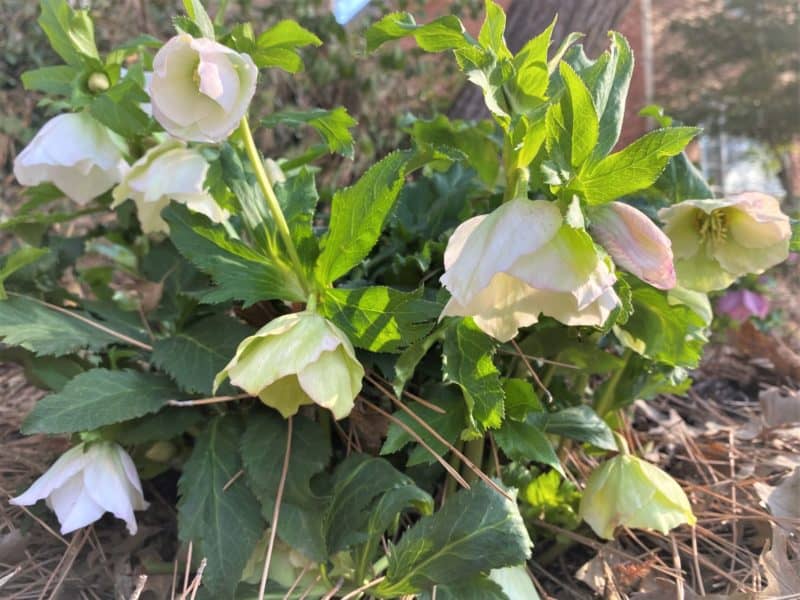

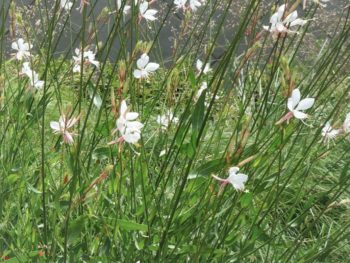
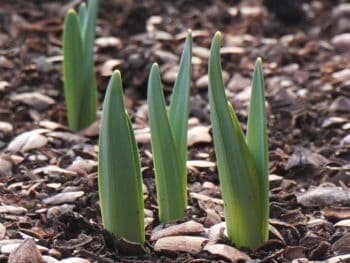
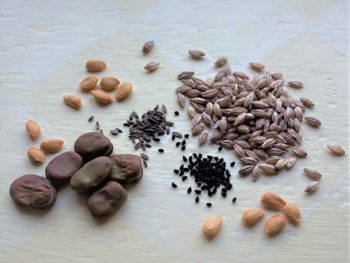


Love you symbolism of these lovely plants, giving us hope through the winter to spring’s new beginnings.